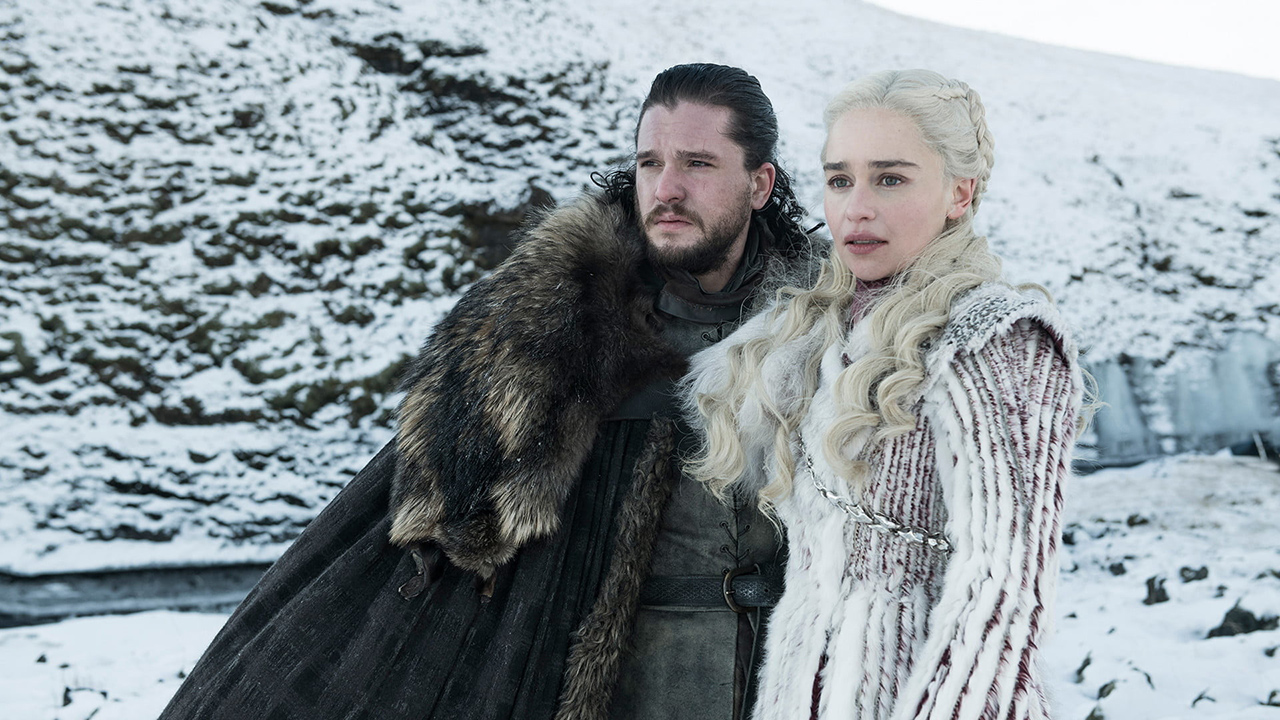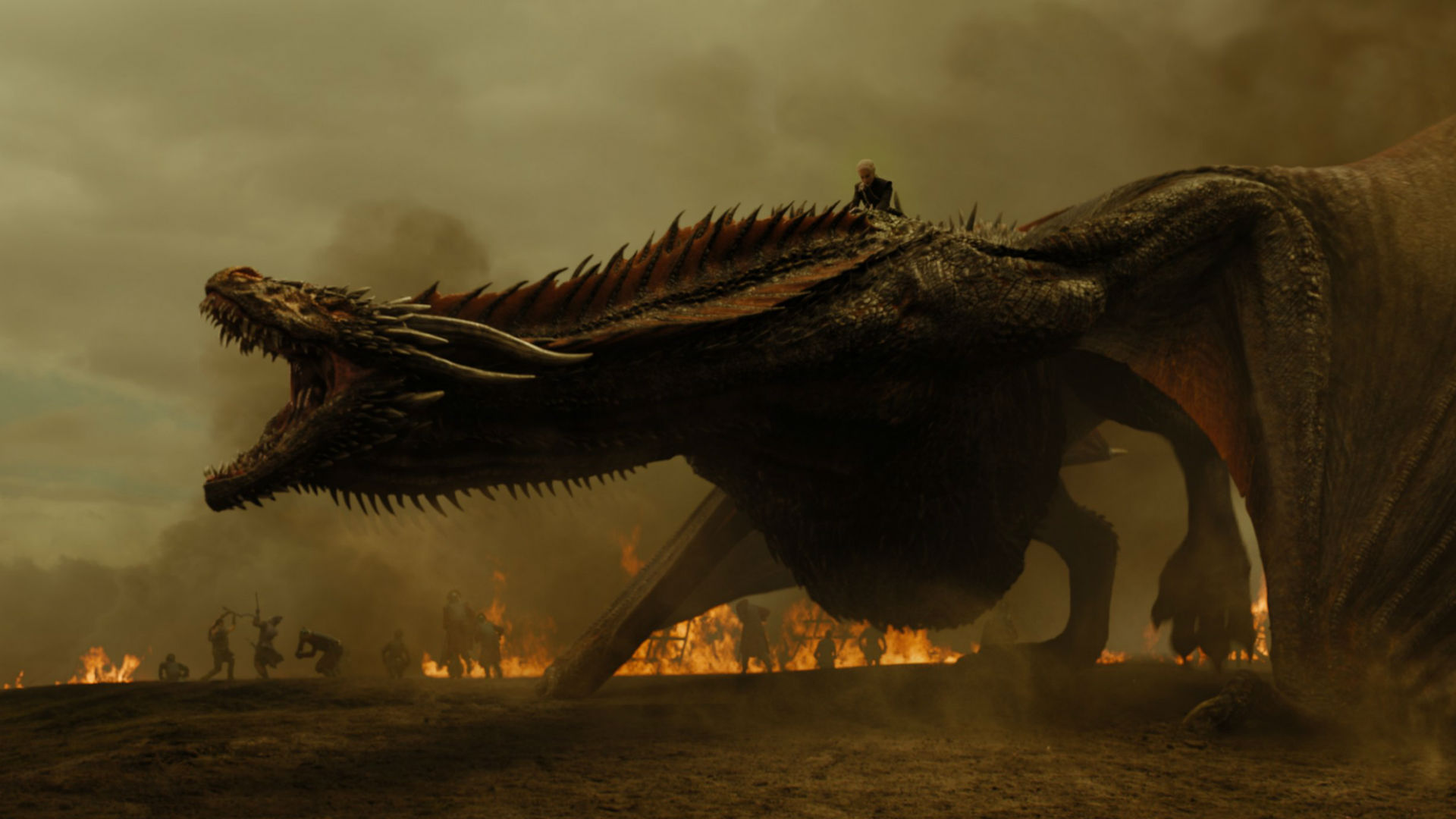Game of Thrones is 10 years old – and now it's dead to us
Opinion: How did something so popular fade away so easily?

Game of Thrones is 10 years old. The HBO fantasy drama debuted on Sunday, April 17 – it landed with a massive ensemble cast, including well-known British names like Sean Bean and Mark Addy, each of whom played characters that wouldn't live to see season 2. We'd never seen a show set in a fantasy universe with this much money behind it, and so much credibility as an adult drama. Over time, its audience would grow and grow.
10 years later, Game of Thrones is something I don't want to think about – at all. I know I'm not alone in thinking this.
The widely criticized finale – capping off a couple of seasons that got more of a divided response than earlier parts of the series did – has salted the earth for me when it comes to the show. In the moment, episode-after-episode, there was nothing I was happy to discuss more than the events of Game of Thrones. Now, I don't think anyone has even mentioned the show to me in at least a year, other than to express their disappointment at how that finale turned out.
I'll keep an open mind for the spin-offs we know are in the works, like House of the Dragon, and three more Games of Thrones shows that were reported back in March. But generally speaking, I've got a bigger appetite to see big-budget adaptations of other fantasy universes. Returning to the world of Game of Thrones isn't something I'm excited about doing.
It's hard to see another show ever having the rise and fall that Game of Thrones did – and that's what makes it fascinating to reflect upon in 2021.
- Best HBO shows
- What we know about House of the Dragon on HBO
- Best Netflix shows
What Game of Thrones represented
10 years ago, I was working on the now-defunct UK magazine SciFiNow. Game of Thrones had been on my radar for a while – and even though HBO had found success with vampire soap True Blood, this premium cable network wasn't synonymous with sci-fi, fantasy or superheroes. It was more about antiheroes in the real world – Tony Soprano, Stringer Bell and, er, Larry David in Curb Your Enthusiasm.
The year before, The Walking Dead debuted on AMC in the US, in the capable hands of Frank Darabont. It felt like a new era of big-budget genre TV was starting to emerge.
Get daily insight, inspiration and deals in your inbox
Sign up for breaking news, reviews, opinion, top tech deals, and more.
In the late '90s and early '00s, genre TV was regarded as more cultish, with a notable exception in The X-Files. What came next was the rise of serialized genre drama that was starting to be taken seriously by critics. When it comes to TV, I think there's a line you can draw from early '00s favorites like Lost and Battlestar Galactica, through Game of Thrones and The Walking Dead, right through to modern shows like The Mandalorian and The Boys.
Game of Thrones was a massive moment: a big-budget adaptation of George RR Martin's still-unfinished A Song of Ice and Fire books that, over time, would prove to have no constraints in what it was able to put on the screen. By season 2, the battle scenes were movie-scale. If a scene called for dragons, we'd get well-rendered dragons.
The show succeeded in making the machinations of Westeros feel exciting and dangerous, and over entire seasons put characters through significant changes. Game of Thrones is functionally the story of the children of Ned Stark, in parallel to the journey of Daenerys Targaryen, the true ruler of Westeros who hails from a line of mad kings. The show turned shocking moments from the books – like massacring key characters during the famous Red Wedding sequence – into jaw-dropping moments of TV.
It was miraculous that a show like this was at the center of the pop culture conversation – it didn't really have a precedent, except maybe big-budget historical dramas like Rome. It became HBO's most popular series ever. In the UK, you had to watch new episodes before work on Monday mornings just to avoid spoilers from the night before on social media. I remembering unfollowing someone on Twitter for spoiling the death of the character Hodor, and publicly put them on blast for it. That's how you know a show has reached next-level popularity.
I saw some commentators point out that Game of Thrones would mark the last TV series where everyone was watching the same thing at the same time – that it was the final monocultural event, in an age of streaming service overload and a million different things to watch.
I don't think that's the case. It feels like Disney Plus shows like The Mandalorian have managed to achieve something similar – but Game of Thrones achieved this level of success while specifically being a show made for adults, which is a far rarer feat.
Why we all turned against Game of Thrones

If there's one part of the Game of Thrones criticism that I found unfair, it's the way fans' crosshairs were set on show creators DB Weiss and David Benioff when the series' decline kicked in. It's true that the show got more uneven once the writers ran out of source material to draw upon – particularly in how episodes were paced, and how time seemed to speed up in the show – but the opening terrific seasons of Game of Thrones weren't a fluke. It took a lot of skill to make them that good.
Yes, the creators had great source material to work with, but there are a thousand terrible adaptations of fantastic books. You don't accidentally make five top seasons of a TV show with that many characters. They put the work in, and built something great.
The problem is, the ending was so unsatisfying that it's killed all of my enthusiasm to repeat that journey. Game of Thrones' rushed-feeling finale – which killed off Daenerys Targaryen, and installed dull boy Bran Stark out of nowhere as the King of Westeros – sours the entire series. The thought of rewatching it hasn't even entered my mind, since I know the whole thing ends on a bum note. It's such a non-event of a finale that it's bewildering, when you reflect on it.
The last two seasons generally are a bit guilty of ticking off major plot points like there was a big list they had to burn through. As a result, some episodes or arcs (like the fate of the White Walkers) felt rushed, which seemed unnecessary given just how successful the show was. Surely HBO would've been happy to have a further season or two of episodes, if it meant wrapping things up properly or continuing the story?
As it stands, it feels like Game of Thrones has absolutely vanished from the pop culture conversation – which is unprecedented for something as widely watched as this. While some fans pointlessly badger HBO for the final season to be remade on social media, probably because Zack Snyder's Justice League showed them it's not impossible to do this, it feels more like a cautionary tale of expectations and viewer investment.
Sometimes, serialized dramas just backfire like this in sticking the landing. It's the price you can pay for telling a story this ambitious, and figuring out the roadmap as you go. Game of Thrones seems particularly egregious because it was such a fall from grace, and so many of us were watching it happen in real time. Lost had a similar story. So did Dexter.
Meanwhile, little-watched shows that end perfectly – like HBO's mystery drama The Leftovers – never quite get the credit they deserve. The number of people watching is absolutely a factor in how disappointing that finale felt overall.
If anything, it's strange that Game of Thrones hasn't spawned more imitators. You could argue that the likes of Vikings and The Last Kingdom exist in Game of Thrones' shadow, and certainly The Lord of the Rings show on Amazon is vying for the same audience. But a fantasy-themed drama that reaches this level of critical and commercial success still feels like lightning in a bottle. It's such a shame it didn't end in a way that makes us excited about it a decade later.
Congratulations on being made king, Bran. I hope it was worth it!
Samuel is a PR Manager at game developer Frontier. Formerly TechRadar's Senior Entertainment Editor, he's an expert in Marvel, Star Wars, Netflix shows and general streaming stuff. Before his stint at TechRadar, he spent six years at PC Gamer. Samuel is also the co-host of the popular Back Page podcast, in which he details the trials and tribulations of being a games magazine editor – and attempts to justify his impulsive eBay games buying binges.
